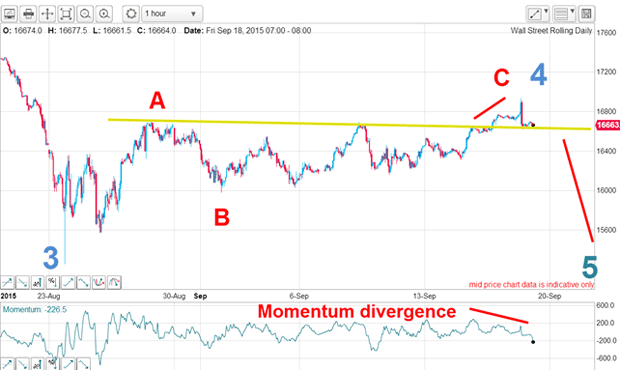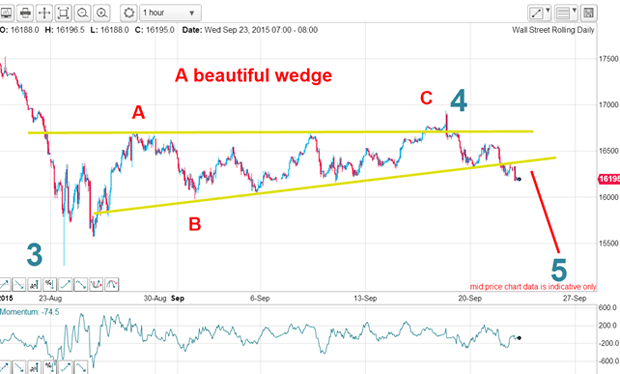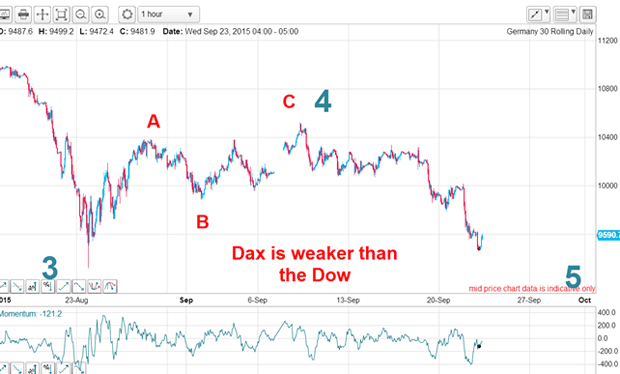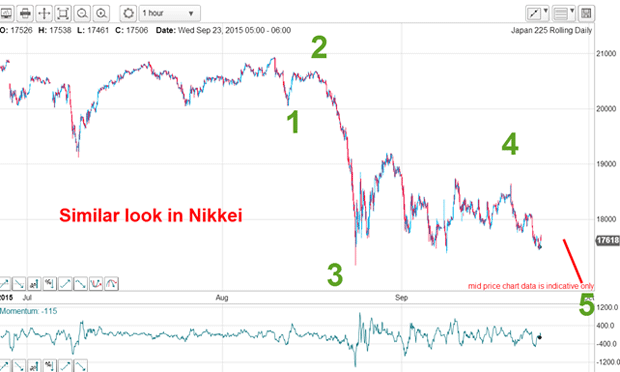I have a 'full house' sell alert
John C Burford explains why the VW car emissions scandal is the latest signal the bull market has run its course.
Get the latest financial news, insights and expert analysis from our award-winning MoneyWeek team, to help you understand what really matters when it comes to your finances.
You are now subscribed
Your newsletter sign-up was successful
Want to add more newsletters?

Twice daily
MoneyWeek
Get the latest financial news, insights and expert analysis from our award-winning MoneyWeek team, to help you understand what really matters when it comes to your finances.

Four times a week
Look After My Bills
Sign up to our free money-saving newsletter, filled with the latest news and expert advice to help you find the best tips and deals for managing your bills. Start saving today!
If you've been following the well-publicised Morgan Stanley "Full house buy alert" advice over the last few weeks, you might have been tempted to dip your toe into the stockmarket.
But just when you thought it was safe to get back into the stockmarket, another shark started circling.
Of course, the shark I am referring to is the VW caremissions scandal. When I first heard of it, I immediately recognised it as a very big deal. Of course, we have had carscandals before, but these have been mainly the result of omission (an honest mistake). But this is one of commission (a very dishonest and deliberate act intended to deceive).
MoneyWeek
Subscribe to MoneyWeek today and get your first six magazine issues absolutely FREE

Sign up to Money Morning
Don't miss the latest investment and personal finances news, market analysis, plus money-saving tips with our free twice-daily newsletter
Don't miss the latest investment and personal finances news, market analysis, plus money-saving tips with our free twice-daily newsletter
You can read all the details elsewhere, but to me, this is one more nail in the coffin of the bull market.
Incidentally, I have a theory about well-publicised, definite market predictions issued by famous finance houses: they are almost always wrong, and timed spectacularly poorly, usually just before the market shoots the other way. Could this be because the firm wants to unload doomed stock onto less sophisticated investors?
Another reminder that markets move news, not vice versa
When you see things in this light, many usually inexplicable market turns suddenly become understandable. And when combined with use of basic Elliott wave theory, this knowledge can help put the odds of success firmly in your favour.
On Friday, I covered the very negative reaction of the Dow to last week's Fed non-news that interest rates weren't about to rise. I have been waiting for signs that the market was losing faith that the Fed could keep stock prices elevated. The market has overwhelmingly believed that it could do just that but I wasn't so sure.
I knew that just one little slip would cause the whole house of cards (debt) to crumble. And last week's stockmarket decline in response to what was normally considered 'bullish' news was the tip-off I was looking for.
The move occurred with immaculate timing just as my waves C and 4 were completing. This is the chart I showed on Friday:

The August 24 plunge low was my wave 3 and since then, the market had been tracing out a complex wave 4 up. When wave 4 terminated, wave 5 down would start. During this wave 3 period to August 24, pundits were bearishly commenting on the collapse of Chinese shares and the mood was ugly.
But as the market stabilised in wave 4, more were expressing confidence that there were massive bargains to be scooped up in the dip. But this bullishness has set up more fuel for the declines to come in wave 5. It's a cruel world!
The buy-the-dip boys got burned
So, how are the buy-the-dip boys doing now? This is the hourly chart this morning:

Oops! Since Thursday's high, the market has declined by almost 800 points (4.7%) and has broken below my lower wedge line a very bearish move.
Remember, I like wedges! When they are broken, I have a handle on a major target and that is at the start of the wedge. In this case, that is the 15,500 16,000 area.
But my main target is when wave 5 ends as it should under the wave 3 low at the 15,250 area.
Germany and Japan have it even worse than the US

Yesterday, the market came within a thick whisker of matching the wave 3 low at 9,320 area. And from the wave 4 high, the market has fallen by almost 900 points (about 9%). I well recall that German shares were heavily touted not so long ago. Ouch!
And here is the Japanese Nikkei another market that has been heavily touted. That index too sports a very bearish picture:

Of course, there is a huge spill-over from Germany to Japan, because they both have massive carindustries, which are suddenly under tremendous pressure.
In all of the above markets, my forecast is for further weakness as wave 5 develops. But when the low is in, I expect a massive rally phase (which should coincide with a similar move up in commodities).
Long-term traders who are short from much higher up can look forward to taking massive profits as wave 5 terminates and possibly position long. That will be when pundits proclaim the end of the bull market, of course. And the only way is down. Timing the lows need not be more complicated than following the headlines.
So, maybe Morgan Stanley, having unloaded their shares, will be poised to buy them back at the wave 5 low. That is, if they follow my basic Elliott wave roadmap. But I doubt they will and that gives us ample opportunity to profit against them.
Get the latest financial news, insights and expert analysis from our award-winning MoneyWeek team, to help you understand what really matters when it comes to your finances.
John is is a British-born lapsed PhD physicist, who previously worked for Nasa on the Mars exploration team. He is a former commodity trading advisor with the US Commodities Futures Trading Commission, and worked in a boutique futures house in California in the 1980s.
He was a partner in one of the first futures newsletter advisory services, based in Washington DC, specialising in pork bellies and currencies. John is primarily a chart-reading trader, having cut his trading teeth in the days before PCs.
As well as his work in the financial world, he has launched, run and sold several 'real' businesses producing 'real' products.
-
 How a ‘great view’ from your home can boost its value by 35%
How a ‘great view’ from your home can boost its value by 35%A house that comes with a picturesque backdrop could add tens of thousands of pounds to its asking price – but how does each region compare?
-
 What is a care fees annuity and how much does it cost?
What is a care fees annuity and how much does it cost?How we will be cared for in our later years – and how much we are willing to pay for it – are conversations best had as early as possible. One option to cover the cost is a care fees annuity. We look at the pros and cons.